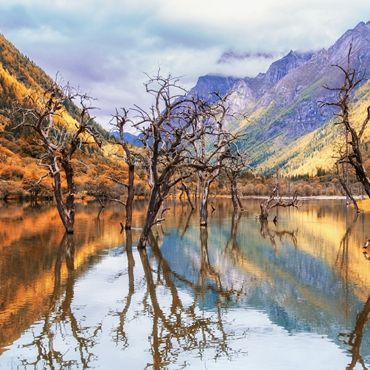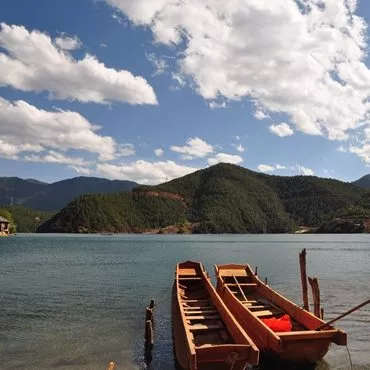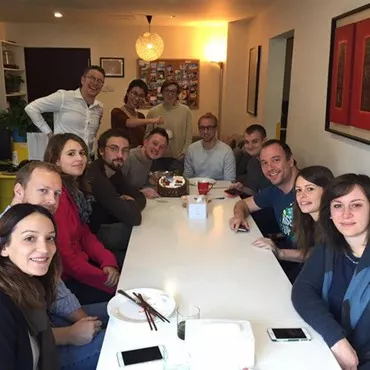Fuzhou Travel Tips
Fuzhou, bordering the East China Sea, has a warm and humid sub-tropical monsoon climate with abundant rainfall. The weather is mild and the annual average temperature is about 19.6C (67.28F). January is the coldest month with an average temperature of 10.5c, with July being the hottest with an average temperature 28.6c. The annual rainfall averages 1342.5 mm.
Weather in spring is changeable and rainy. Tourists will require a knitted sweater or jacket. During May to September is the summer season of Fuzhou, it is sunny and hot for the main with a peak temperatures between July and August, tourists should wear well ventilate clothing. Also June, July and August is the typhoon season, and as such is prone to heavily rain and storms which is not the ideal time for visiting. Unlined garments or a thin sweater are sufficient in the fall, from October to November in Fuzhou. With an abundance of sunlight, fall is a season of good weather which is also the best time for travel.
The recommended season of visiting Fuzhou is in fall and winter. Then the cool and clear days, with evergreen trees describe a scene of southern latitudes, which is charming especially for tourists from northern latitudes. For a group, Fuzhou is a suitable destination for tours all the year round.
Cross-Straits Fair for Economy and Trade is held every May 18th. Tourists should avoid this period due to the shortage of restaurant tables and hotel beds, etc. around this time.
Local Festivals and Folk Custom
Hakka Customs
During the rebellion of the eight princes in the Western Jin Dynasty (265-316), Huang Chao's uprising at the end of the Tang Dynasty (618-907) and the invasion of the Jin troops at the end of the Northern Song Dynasty (960-1127), which known as the three noticeable social upheavals in China's history, the shadow of death born of war, natural disasters and pestilence caused a mass exodus of people who left the Yellow River plains and sought refuge in the south. Some of these people, after crossing the Yangtse River, traversing what is now Jiangxi Province and tramping over the Wuyi Mountain Range, finally reached western Fujian Province.
With the region's green mountains, fertile lands and pleasant climate, they settled down and built their new homes in this hilly virgin and lived a happy and peaceful life here. These people began to be called the "Hakka", which means "guest families", thus distinguishing them from the native people there. In the next thousand or so years, the Hakka spread out to all parts of the world. A considerable number emigrated to Southeast Asia as well as to Hong Kong, Macau and Taiwan. But when asked of their ancestry, they all say that their ancestral home is in western Fujian.
After they settled in the new place , the Hakka still reserved some of their tradittional customs and combimed them with the local customs and culture to form the Hakka culture today.
A Hakka Wedding
Today in Shibi Village the young Hakka people, despite the fact that they wear fashionable dresses, ride motorcycles or enjoy modern dances, still hold wedding ceremonies strictly according to the unique Hakka tradition.
The greater part of the Hakka wedding rites take place in the bride's home, and only at midnight does the bride leave her parents' home. In the dark of night, the bridegroom and his family members, holding torches and beating drums and gongs, walk across forests and fields to the bride's home. A "negotiation" between representatives from both the bride's and groom's sides then begins until an "agreement" is finally reached. This is all part of the ceremony: in fact, everything is arranged long before. Then an old lady specially invited to act as the master of ceremonies takes charge of every detail involved in sending the girl to the bridegroom's home.
First, the old lady helps the bride put on her make-up, then helps her to check every article of her dowry. This is followed by a grand ceremony called "passing over the rice sifter". In the middle of the ancestral hall is a barrel full of unhusked rice with two red candles planted in it. Placed on the rice are a ruler, symbolizing "appropriately measuring out living expenses without waste", a pair of scissors, meaning "diligently doing needlework", and a mirror, suggesting "perceiving and removing stains to avoid disgrace". Undoubtedly, the rice barrel itself is a symbol of a plentiful life and a bright future.
Other Odds and Ends
Phone Dialing Code: 0591
Postcode: 350000
Emergency Call
Fire: 119
Police: 110
First-Aid Center: 120
Post Office:
Fuzhou Post Office
Address: 259, Hualin Lu
Civil Aviation Ticket Office (in Wuyi Lu): 0591-83345988
Fuzhou Tourist Bureau: 0591-83355312 (for tourists’ complaint)
Address: 96, Wushan Lu
Emergency Center of Fujian provincial hospital: 0591-87556436
Address: 134, Dong Jie Kou
Fujian Provincial Women and Children Health Care Hospital: 0591-87557800、87555546
Address: 18, Daoshan Lu
Red Cross Hospital: 0591-83269925、83281472
Address: 190, Dadao Lu
Money
Fujian Branch of Bank of China
Address: 136, Wusi Lu
Universities
Fuzhou University
Address: No. 523, Gongye Lu, Fuzhou
E-mail: [email protected]
Fujian Normal University
Address: No. 8, Shangsan Lu, Cangshan Qu, Fuzhou
E-mail: [email protected]
Fujian Medical University
Address: No. 88, Jiaotong Lu, Fuzhou
E-mail: [email protected]













